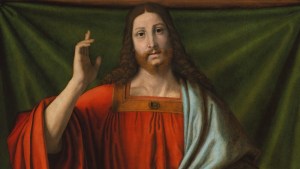Dostoyevsky wrote that “the whole law of human existence consists merely of making it possible for every human being to bow down before what is infinitely great. If a person were to be deprived of the infinitely great, he would refuse to go on living, and die of despair.” To be ourselves, we need to worship. The Catechism tells us that creation itself was fashioned “for the worship and adoration of God. Worship is inscribed in the order of creation” (347).
Worship gives us a realistic perspective on life. “The worship of the one God sets man free from turning in on himself, from the slavery of sin and the idolatry of the world” (2097). Human nature has been made in such a way “that it must have something holy that it can worship, otherwise it becomes cramped and distorted, and then, instead of a holy object of veneration, something else will take its place” (A. Delp).
How do we worship? Worship begins by adopting a godly frame of mind. “Worship means accepting that nothing finite can be my goal or determine the direction of my life, but that I myself must pass beyond all possible goals” (J. Ratzinger). Worship, says St. John Paul II, “does not primarily consist in expressing human thoughts and feelings, but in listening to the divine Word in order to know it, assimilate it, and put it into practice in daily life.”
The essential form of Christian worship is Eucharistia, thanksgiving:
In this form of worship human achievements are not placed before God. On the contrary, Eucharistia consists in man’s letting himself be endowed with gifts. We glorify God by letting ourselves be endowed with God’s own gifts and thus recognizing him as the only Lord. We worship him by dropping the fiction that we could face God as independent business partners, whereas in truth we can only exist at all in him and from him.
By worshiping this way we fulfill the chief purpose of life which is “to increase, according to our capacity, our knowledge of God by all the means we have, and to be moved by it to praise and thanks—to do as we say in the Gloria: we worship you” (J.R.R. Tolkien).
~
Follow Fr. Cameron’s series on prayer here.
See some of the earlier pieces:



